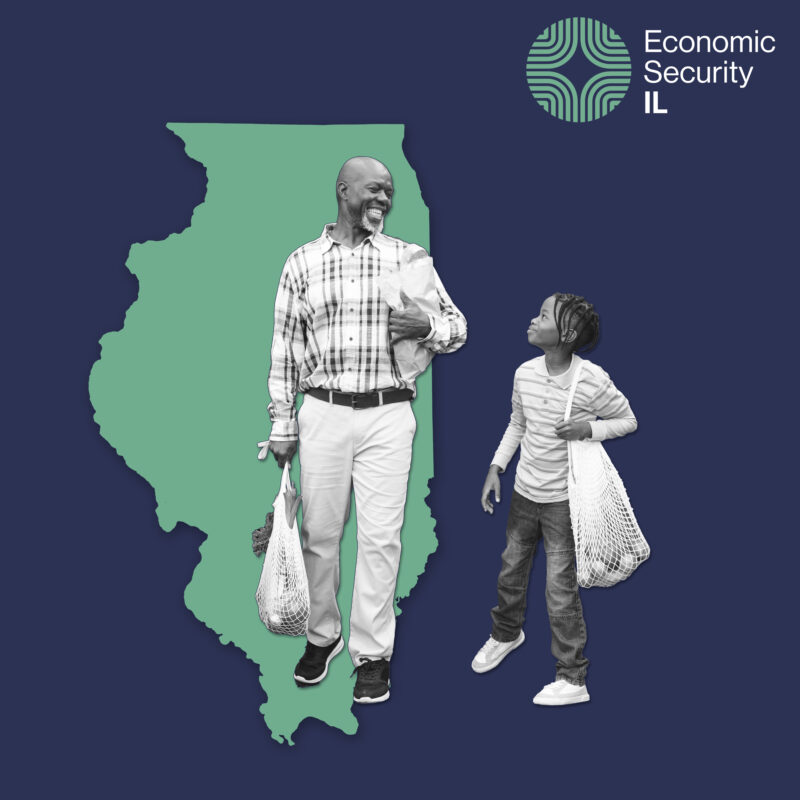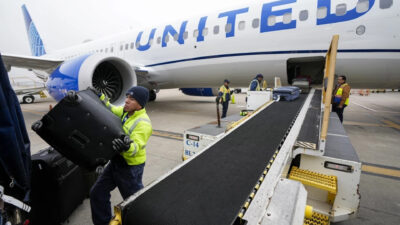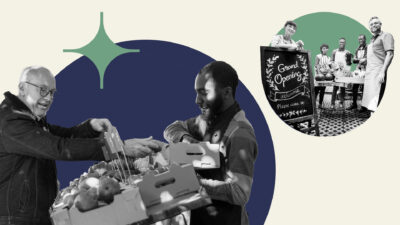Creating an economy that works for the people of Illinois.
By putting cash into Illinoisians’ pockets, and keeping corporations out of them, we can create an economy that works for everyone.
By putting cash into Illinoisians’ pockets, and keeping corporations out of them, we can create an economy that works for everyone.


03. 12. 2024
Visit resource page: CHICAGO SUN-TIMES: Illinois ‘junk’ fee legislation calling for price transparency, from airline or concert tickets to rent
03. 05. 2024
Visit resource page: NPR: Places across the U.S. are testing no-strings cash as part of the social safety net
02. 28. 2024
Visit resource page: Illinois Leads: Eliminating Junk Fees for Fair Prices
09. 13. 2023
Visit resource page: Chicago Mayor Announces The Exploration Of A Municipally Owned Grocery Store
08. 14. 2023
Visit resource page: WTTV: Architects, Community Advocates Say Investing in Public Spaces Can Make Neighborhoods Safer
05. 10. 2023
Visit resource page: CBS NEWS: Guaranteed income program helps single mother make ends meetAt Economic Security IL (ESIL), our vision is rooted in a steadfast commitment to fostering a future where economic security is not a privilege but a fundamental right for every individual in Illinois. Since our establishment in 2018, we’ve been dedicated to catalyzing transformative change across Chicago, Cook County, and the entire state. Our mission is clear: to empower every resident with the resources, opportunities, and autonomy needed to flourish and thrive.
ChallengeIn Illinois, the pursuit of economic security encounters formidable challenges rooted in systemic inequities and the aftermath of the COVID-19 pandemic. Structural barriers exacerbate poverty and inequality, particularly among marginalized communities, perpetuating a persistent racial wealth gap. According to the Institute on Taxation and Economic Policy, Illinois has the country’s 8th most regressive state and local tax system, and our efforts to empower Illinoisans start with making this tax system work for families, not against them.
Resource deserts further compound economic disenfranchisement, limiting access to essential services such as banking, affordable groceries, reliable internet, and childcare. Overcoming entrenched ideologies and fostering broad support for progressive economic reforms requires strategic communication and coalition-building efforts.
What We DoOur current work encompasses narrative change, advocacy, and legislative campaigns at both local and statewide levels. We are doubling down on efforts to create new cash programs and expand existing ones, ensuring equitable access to households across Illinois. Collaborating with cash coalition partners, foundations, nonprofits, and policymakers, we strive to develop policies like the Illinois Child Tax Credit to foster financial stability and resilience among recipients.
In tandem with our advocacy efforts, we are actively working at the community level to bridge the gap between cash assistance and market-shaping initiatives. This involves facilitating the launch of public options like grocery stores in municipalities, leveraging resources from the Illinois Climate Bank for community development projects, and advocating for legislation to address corporate concentration, like banning junk fees. By intertwining cash assistance with broader market-shaping interventions, we aim to create more inclusive and sustainable economic environments for underserved communities.
ImpactWe’ve channeled over $1 billion in public funding directly into the pockets of low-, and middle-income Illinoisans. Our efforts have been instrumental in establishing two of the nation’s largest guaranteed income programs, implemented in the City of Chicago and Cook County, Illinois, alongside numerous one-time direct cash transfer initiatives in collaboration with grassroots organizations, immigrant advocates, and local governments. Moreover, ESIL played a pivotal role in orchestrating a historic expansion of the State of Illinois’ Earned Income Credit, extending eligibility to nearly one million more residents and enhancing benefits for over 4.5 million working-class Illinoisans, irrespective of age or immigration status.
Through strategic partnerships and relentless advocacy, ESIL has catalyzed tangible policy changes that have significantly bolstered economic security and empowered communities across the state. Our collaborative efforts with state and local elected officials, stakeholders, and grassroots organizations have expanded access to vital income support programs and paved the way for a more equitable and inclusive economic landscape in Illinois.
Our Team
Illinois Policy and Advocacy Director

Senior Advisor

Senior Communications Strategist